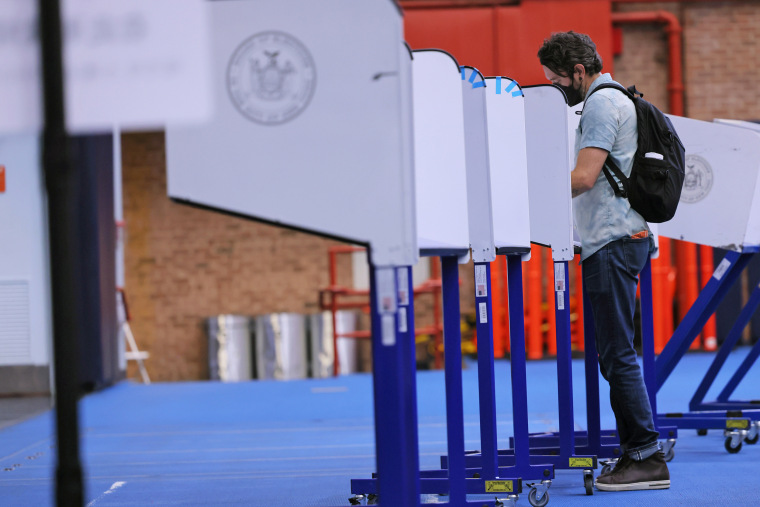Priorities USA, one of the top Democratic super PACs, is leaning on its largess to create a roadmap for the Democratic Party to push deeper into the digital advertising space.
While the group said earlier this year it would spend $3.5 million on training and online outreach, Priorities USA outlined new specific details about their digital training efforts to NBC News.
The group is spending about $2.5 million for building out its own digital ad-tracking tool, testing and experimenting new ad strategies and polling related to digital ads. Another $1 million is being spent to share the fruits of their research through training, grants and other partnerships.
“For us, it was more about access — that not only demystifies that data, but we now have local organizations and folks that are a part of these partnerships as part of working with us,” Aneesa McMillan, the deputy executive director at Priorities USA, told NBC News.
While some digital ad-spending information is publicly available directly from Meta and Google itself, and other political and for-profit groups have digital ad-trackers of their own, McMillan said the group developed its platform in part to provide access to allied groups for free. So far, more than 100 progressive organizations have been given that free access.
Even as total spending on conventional television and radio political advertising skyrockets, digital and streaming spending are making up a larger piece of the total spending pie.
So far this cycle, Democrats have almost a $100 million spending edge in digital ads (ads booked on Meta and Google platforms), per information from the ad-tracking firm AdImpact, $315 million to $216 million.
While the National Republican Senatorial Committee is the top digital spender of the cycle so far, with $22.9 million, the other top spenders are Democrats, including Georgia Democratic Sen. Raphael Warnock ($14.3 million), Illinois Democratic Gov. J.B. Pritzker ($12.5 million) and Planned Parenthood ($12.1 million).
Priorities USA expects to spend $30 million on digital ads this cycle and eschew traditional TV advertising altogether (it spent half of its ad budget on digital ads in 2020.)
“We’ve made these investments long term and we’ll continue to do that,” McMillan said.
“Hopefully we’ll help to move the progressive space, as a whole, forward in seeing the importance of digital advertisements. ... We have to move away from TV because those investments are needed in places where people are spending most of their time now, where they’re looking for information and getting their news.”
Part of that push comes in free trainings the group has offered for hundreds of Democratic campaign staff to bone up on digital best practices, paid fellowships for young digital staffers and $150,000 in digital ad-training grants for organizations based in battleground states. The group says it has trained more than 500 people this year.
McMillan said that after years of strategizing and massive spending (the group is regularly one of the top political ad spenders in any given election cycle, and spent $86 million on digital ads in 2020), Priorities wanted to "put the money in the hands of the folks on the ground, instead of us coming in and trying to do things without the same infrastructure a local group has."
That guidance could be helpful, particularly for smaller groups in an ever-shifting landscape.
Facebook announced last week it won't be approving new political ads a week before Election Day over fears of last-minute misinformation — a similar policy to what it had in 2020.
Nick Ahamed, who also serves as Priorities' deputy executive director, told NBC News in a statement that Facebook's 2020 decision forced the group to prepare a slew of ads much earlier in the process "accounting for every scenario that might require rapid response, and make sure our ads were reaching every voter we needed."
With that rule returning again, McMillan pointed to the group's 2020 experience as something its wider network can benefit from in the weeks before this fall's election.

